It looks like you're using an Ad Blocker.
Please white-list or disable AboveTopSecret.com in your ad-blocking tool.
Thank you.
Some features of ATS will be disabled while you continue to use an ad-blocker.
3
share:
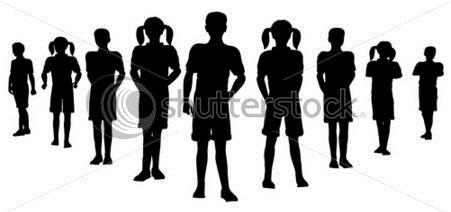
Inspired by this post in another thread, I started wondering about the idea of “government by children” in a purely theoretical sense. Has it ever been tried? Could it possibly work? And what would it be like?
The word “gerontocracy” is used to mean “government by the old” but I couldn’t find a widespread word for “rule by the young.” A net search revealed the words “paedocracy” and “ephebocracy” for this concept, but neither seems to be in common use. And why would they be? After all, it is not a common (or perhaps even ultimately viable) form of government. At the end of the day, youth alone cannot rule; it makes no sense. The older people in the population would never put up with it, for one. For another, children lack the adult capacity for cognitive and social skills, and this ultimately makes complex tasks like governing impossible. When I look at most of the examples below, perhaps the common factor is failure and half-measures. But that doesn’t mean it won’t be tried again, no?
The phenomena below are not exactly youth rule in a proper or pure sense, but rather are expamples of situations in history where the young have wielded more-than-usual amounts of political or social power. The examples point to different facets of what aspects of child rule might be like. Feel free to add your own, or anything else you want to say about the topic.
Child Monarchs
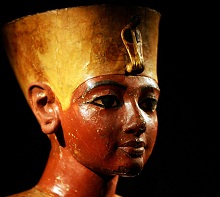
In many times and places, children have officially held the throne in many nations. Obviously in most cases they do no actual ruling, but are figureheads controlled by regents or other adults. In some times and places, however, child monarchs may have held more power than commonly believed. Ivan the terrible of Russia, for example, began his reign as a boy-monarch in a court riven by bloody disputes between competing power cliques. Growing up in this atmosphere, a paranoid young Ivan learned to survive by playing the different power-blocs off against each other. In other times, young leaders like ancient Egypt’s Akhenaten ( Amenhotep IV) used their youth to shake up hidebound cultural, social, and religious conventions.
The 60s Youth Culture
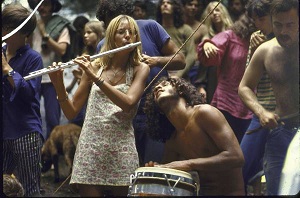
The baby boomers in the 1960s can’t really be said to have ruled, but they exerted a huge influence on the culture and politics of the Western world simply by the weight of their sheer numbers. Youth protests and attitudes shocked elders and created a radical divide that threatened to undermine state and cultural authority. Creating informal networks and short-lived experiments in communal living, many young hippies tried to create an alternate society of the young, either by “dropping out” or resisting the system more actively.
The Third-World Baby Boom
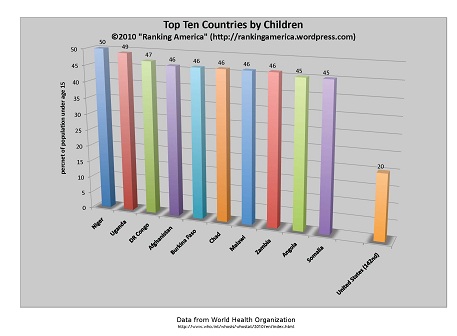
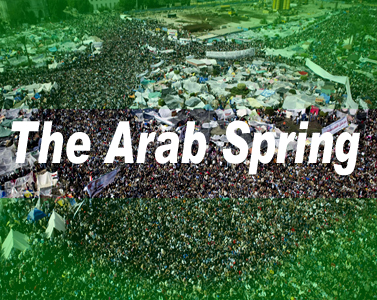
Much as a huge demographic bubble in the Western world of the 1960s resulted in a shift of power and influence to the young, today the muscle of the young is on the rise throughout Africa, South Asia, and the Middle East. In many of these nations, the majority is under 25, which has a huge effect on the way things are done, even if it doesn’t constitute youth rule per se. Phenomenon like the recent “Arab spring” uprisings may be considered examples of vast, youthful populations flexing their growing muscle, and I expect we will see future generational conflict in these parts of the world as old systems struggle to process huge young populations.
The Children’s Crusade
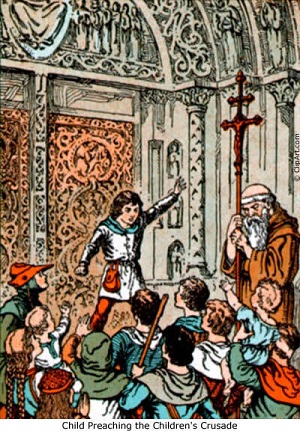
The children’s crusade is a controversial event that may not have taken place the way it is said to have taken place. But according to tradition, in the year 1212 there were two simultaneous popular movements of children seeking to re-take Jerusalem from the Muslims. One band was led by a German boy named Nicholas, who took his band of children to the Mediterranean Sea with the expectation that it would part for them as the Red Sea did for Moses, allowing them to walk to the Holy Land. Of course it didn’t quite work out like that. The other movement in the same year was supposedly 30,000 kids lead by a French Shepard named Stephan of Cloyes. Most of this large group of children ended up being sold into slavery or drowning at sea, according to one telling.
Child Soldiers in Africa
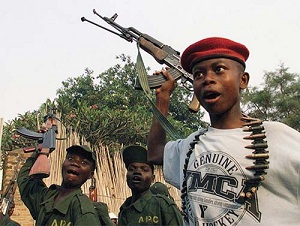
The sad situation of child soldiers in Africa has been in the public mind of late, with the “Kony 2012” video about the LRA in Uganda. The LRA is hardly the only child army to emerge in Africa in recent decades, however. Other notable examples include the RUF in Sierra Leone during the 1990s, as well as child soldiers in Somalia and Liberia. The day-to-day operations of these groups are enforced by very young boys, who exercise a power and a hazy political consciousness that could be said to be related to the idea of rule by the young – with disastrous and tragic consequences.
Mao’s Red Guards
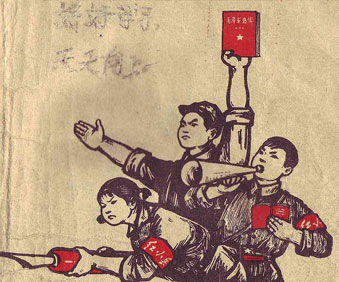
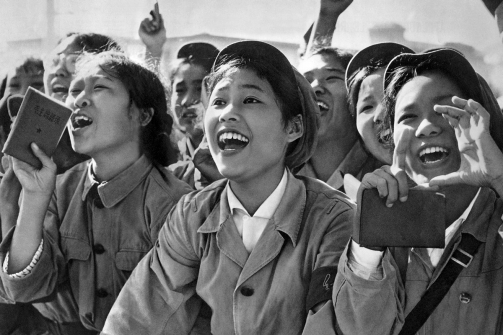
During the late 1960s and 1970s, Chinese leader Mao Zedong was feeling threatened by many of the officials under him. In a ploy to maintain his power, he unleashed the so-called Cultural Revolution, encouraging the youth to rise up against the older Communist establishment. The Red Guards, gangs of Mao-worshipping adolescents, proceeded to take over factories, schools, universities, and entire communities, often lynching, killing, and torturing older authority figures who stood in their way. The Red Guards were a serious blow to China’s economy and society, and it took years for the mayhem to fully settle down.
In Fiction
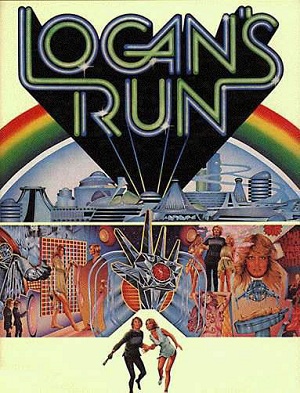
The idea of youth rule has been treated in many works of fiction, perhaps not surpringly, since it is an interesting idea but seems only possible in fiction. A few examples that spring to mind with this type of theme are the book/movie Logan’s Run and several short stories by Ray Bradbury (such as The Children’s Hour. The 1968 movie Wild in the Streets (see vid clip above) took the idea to its logical, if chilling, conclusion.
edit on 3/26/2012 by silent thunder because: (no reason given)
This is an idea that has always interested me. When I first signed up for ATS last year, one
of my first threads was on this topic. At the time, I believed that youth rule was the only thing that could save the world. I thought adult
society was corrup and that the only real answer was a clean sweep, replacing everyone old and corrupt with purer hearts and minds.
I no longer think this way. Probably because of things like in the original post: Whenever anything close to this has been tried in history, it has ended up a failure and a bloody mess. So I don't think its possible anymore.
I wish there was a way to involve young people more in the political process, even before they can vote. Because after all, the youth are the people who actually have to live with the results of the decisions old men and women make about our sad world!
I no longer think this way. Probably because of things like in the original post: Whenever anything close to this has been tried in history, it has ended up a failure and a bloody mess. So I don't think its possible anymore.
I wish there was a way to involve young people more in the political process, even before they can vote. Because after all, the youth are the people who actually have to live with the results of the decisions old men and women make about our sad world!
The youth in the US cant even keep their pants pulled up above their knees and for the most part only consider music laced with profanities as art.
Yeah, they should rule the world.
Looking at the world as is, can we really say the adults are in charge.
Mankind needs to grow up.
The world is cruel enough, compassion comes with age, like wisdom from experience.
Cosmic..
Mankind needs to grow up.
The world is cruel enough, compassion comes with age, like wisdom from experience.
Cosmic..
Lord of the Flies
Tunnel in the Sky
Fictional, but didn't work out so well.
That said, I'd put my 11 year old up against many adult politicians and she'd smoke them on economics and common sense.
Tunnel in the Sky
Fictional, but didn't work out so well.
That said, I'd put my 11 year old up against many adult politicians and she'd smoke them on economics and common sense.
I prefer reasonocracy, where instead of placing a class of people above another, the individual develops their reason to govern themselves.
some children, or maybe adolescents, are quite wise, but that is a minority. Kids as a group would do pretty stupid things.
reply to post by 1pi314
Thanks for bumping this old thread, sir or madam. I sort of figured it would be relegated to the ashheap of ATS without too much interest.
Yes, I as I noted above, I think this has pretty much been a disaster everywhere it has been tried. Although in rare cases there may be some capable children with something valuable to add to a system of government.
If this girl was running for public office, I'd be sorely tempted to vote for her:
Thanks for bumping this old thread, sir or madam. I sort of figured it would be relegated to the ashheap of ATS without too much interest.
Yes, I as I noted above, I think this has pretty much been a disaster everywhere it has been tried. Although in rare cases there may be some capable children with something valuable to add to a system of government.
If this girl was running for public office, I'd be sorely tempted to vote for her:
double post, sorry.
edit on 4/10/2012 by silent thunder because: (no reason given)
new topics
-
Joe meant what he said about Hunter's pardon....
US Political Madness: 12 minutes ago -
Regent Street in #London has been evacuated due to a “bomb threat.”
Other Current Events: 53 minutes ago -
It’s Falling…
Philosophy and Metaphysics: 2 hours ago -
Steering the Titantic from the Drydock.
Rant: 5 hours ago
top topics
-
House Passes Laken Riley Act
Mainstream News: 17 hours ago, 24 flags -
Steering the Titantic from the Drydock.
Rant: 5 hours ago, 9 flags -
Hearing more ambulances lately
Medical Issues & Conspiracies: 16 hours ago, 8 flags -
Paramilitary Leaks - John Williams
Whistle Blowers and Leaked Documents: 14 hours ago, 7 flags -
Los Angeles brush fires latest: 2 blazes threaten structures, prompt evacuations
Mainstream News: 16 hours ago, 7 flags -
It’s Falling…
Philosophy and Metaphysics: 2 hours ago, 4 flags -
The more I think about it
General Chit Chat: 17 hours ago, 4 flags -
Some sausage, some chicken, some sauce, some onions and some garlic...and some peppers!
Food and Cooking: 15 hours ago, 3 flags -
Joe meant what he said about Hunter's pardon....
US Political Madness: 12 minutes ago, 2 flags -
Regent Street in #London has been evacuated due to a “bomb threat.”
Other Current Events: 53 minutes ago, 1 flags
active topics
-
Regent Street in #London has been evacuated due to a “bomb threat.”
Other Current Events • 1 • : angelchemuel -
Joe meant what he said about Hunter's pardon....
US Political Madness • 1 • : xuenchen -
Steering the Titantic from the Drydock.
Rant • 26 • : network dude -
-@TH3WH17ERABB17- -Q- ---TIME TO SHOW THE WORLD--- -Part- --44--
Dissecting Disinformation • 3969 • : Thoughtful3 -
Post A Funny (T&C Friendly) Pic Part IV: The LOL awakens!
General Chit Chat • 8003 • : underpass61 -
Los Angeles brush fires latest: 2 blazes threaten structures, prompt evacuations
Mainstream News • 17 • : Ravenwatcher -
Judge rules president-elect Donald Trump must be sentenced in 'hush money' trial
US Political Madness • 61 • : Xtrozero -
Greatest thing you ever got, or bought?
General Chit Chat • 27 • : mysterioustranger -
Russia Ukraine Update Thread - part 3
World War Three • 6901 • : bastion -
Hearing more ambulances lately
Medical Issues & Conspiracies • 3 • : mysterioustranger
3
